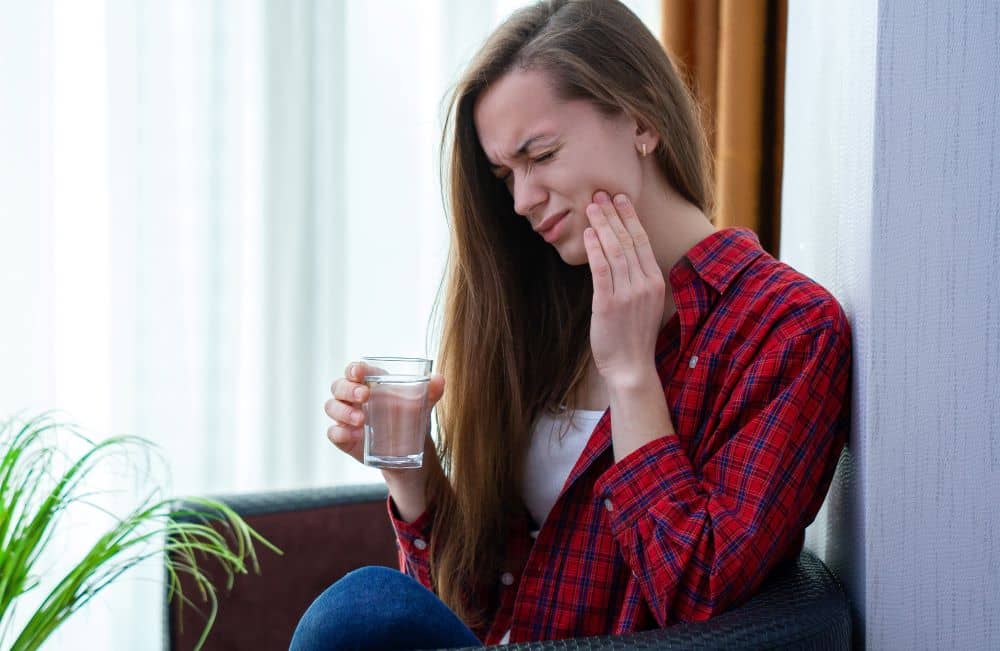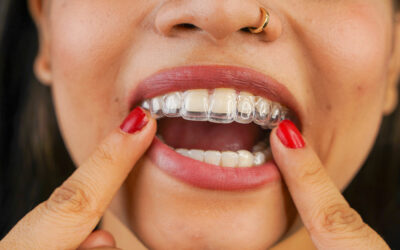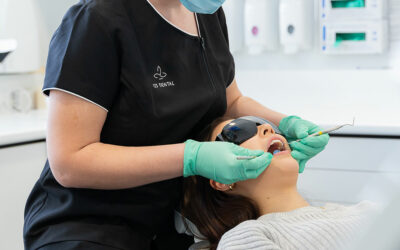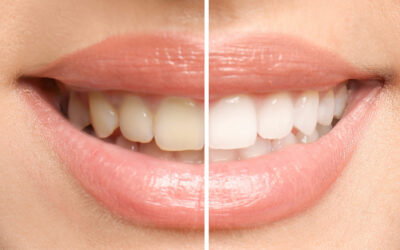Have you been dealing with an annoying canker sore? Here, we’ll look at what causes mouth ulcers, how to treat them, and tips for preventing canker sores.
What Are Mouth Ulcers?
Mouth ulcers – often referred to as canker sores — are tender, uncomfortable lesions that form at the bottom of the gums or inside the mouth. They can make it painful to talk, eat, or drink.
Although they are usually harmless and go away within a week or two, they can be painful and annoying.
What Are the Symptoms of Mouth Ulcers?
Symptoms vary, but most individuals with mouth ulcers experience:
- Swollen skin around the sores
- Difficulty chewing
- Difficulty brushing the teeth near the tender area
- Loss of appetite
- One or more painful sores inside the mouth
- Irritation from sour, spicy, or salty foods
What Causes Mouth Ulcers?
The cause of mouth ulcers is debated, but teenagers, women, and individuals with a family history of mouth ulcers seem more prone to getting them.
Several factors have been recognised as potential triggers for canker sores, including:
- Irritating foods such as strawberries, pineapples, lemons, coffee, eggs, nuts, spicy foods, cheese, and chocolate
- Allergic reactions to certain bacteria in the mouth
- Fungal, viral, or bacterial infections
- Hormonal shifts
- Dental braces
- Burns from eating hot food
- Vitamin deficiency (particularly folate, zinc, iron, and vitamin B12)
- Anxiety and stress
- Lack of sleep
- Certain autoimmune conditions or underlying medical conditions
- Injury to the mouth (sports injury, accidentally biting the cheek, etc.)
- Excessive brushing
- Kinds of toothpaste or mouthwashes that contain sodium lauryl sulphate
- Certain medications (i.e. nonsteroidal anti-inflammatory medicines such as ibuprofen)
When Should I See My Doctor or Dentist About A Mouth Ulcer?
In some cases, canker sores can be an indicator of a more serious condition. This makes it important to talk to your dentist or doctor if you have a mouth ulcer that lasts more than two or three weeks, especially if you regularly use tobacco products or drink alcohol.
Other reasons to call your dentist or doctor if you have a mouth ulcer include:
- Mouth ulcers that are spreading
- Severe pain even if taking pain medication and avoiding trigger foods
- Unusually large sores
- Getting mouth ulcers frequently
- A high fever in addition to canker sores
- Trouble drinking enough fluids
- Sores that extend to the lips
How Are Mouth Ulcers Treated?
Most mouth ulcers will heal on their own within about 10 to 14 days. In the meantime, pain can be managed with an anaesthetic gel and other measures.
Mouth ulcers that are not healing on their own are best treated by a doctor or dentist.
Long-lasting, very painful, or unusually large canker sores are often treated with:
- Prescription mouthwash
- Oral medications
- Nutritional supplements
- Cauterisation with a dental laser or chemicals
- In severe cases, your dentist may prescribe an immunosuppressant medication
Tips for Caring for Mouth Ulcers
If you are dealing with a canker sore, here are some tips to help manage the pain:
- Use a soft toothbrush and be gentle when cleaning your teeth
- Use a mouthwash with chlorohexidine
- Avoid mouthwashes that contain alcohol
- Eat soft foods
- Avoid spicy foods and drinks or hot liquids
- Drink cool water to help ease the pain
- Try drinking through a straw to see if it helps
- Do not touch the area (it can disrupt the healing process and cause infection to spread)
- Keep your mouth clean
- Use slightly salted, warm water as a mouth rinse (you can do this regularly and keep the rinse in your mouth for several minutes at a time)
- If you do touch a mouth ulcer, wash your hands before and after
How To Prevent Mouth Ulcers
Although there is no way to completely prevent mouth ulcers, here are some tips to help avoid them:
- Eat a nutritious, well-balanced diet
- Brush your teeth regularly and gently with a soft toothbrush
- Be sure any underlying medical conditions are under control
- Maintain good oral hygiene
- Avoid talking while you are chewing (this will help to prevent accidental bites
- Avoid foods that irritate your mouth
- Get enough sleep
- Manage your stress levels
Mouth Ulcer Treatment
If you are experiencing an ulcer that is especially painful or slow to heal, please do not hesitate to contact us. We would be happy to answer any questions or set up a consultation for you to be evaluated by our expertly-trained team.










 Hi, you’re chatting with Chloe. If you could please fill out all your details below, I will be in contact with you shortly.
Hi, you’re chatting with Chloe. If you could please fill out all your details below, I will be in contact with you shortly.